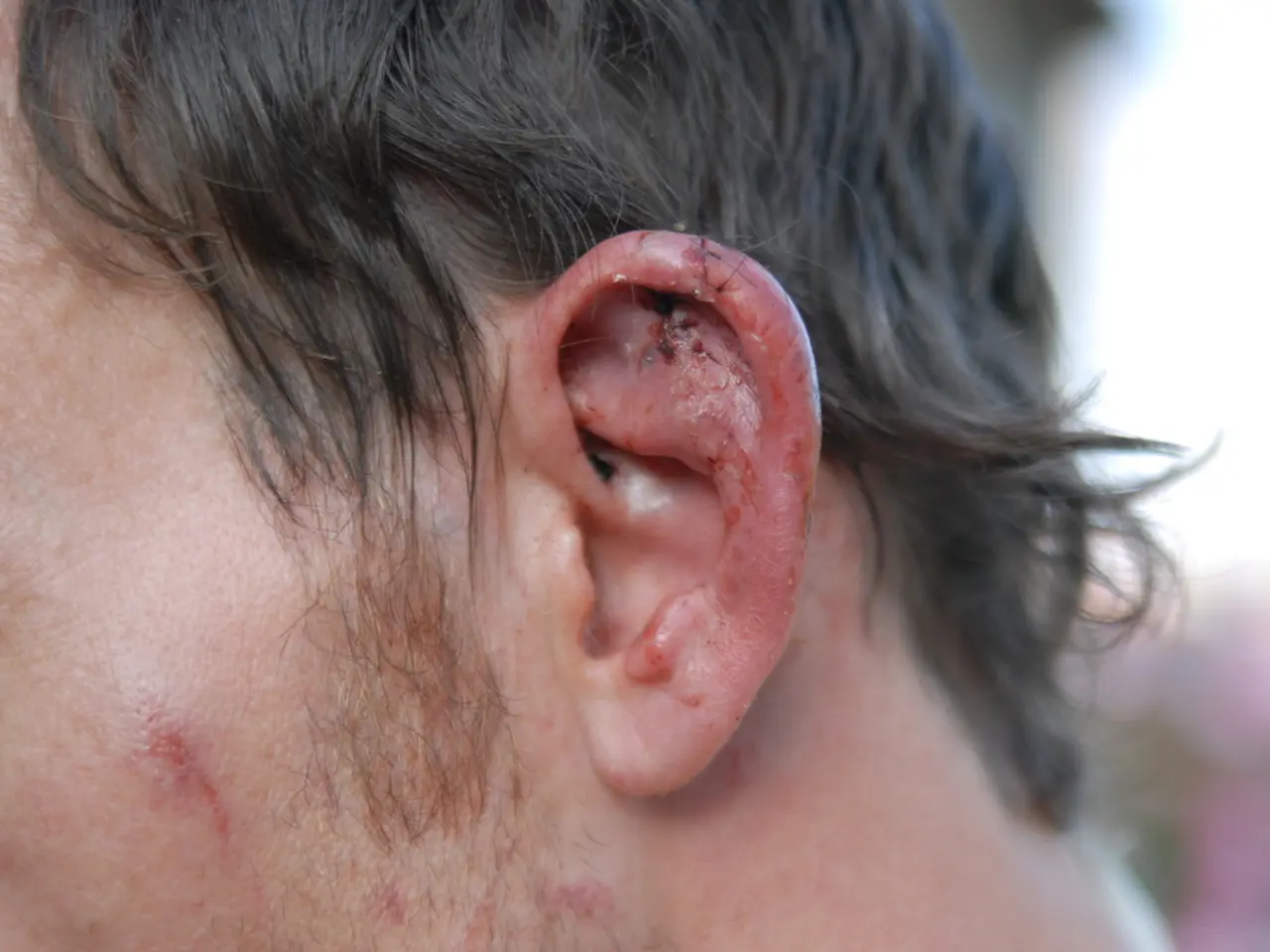Ear pulsing (recurring sensation akin to a heartbeat) coupled with anxiety symptoms
Pulsatile tinnitus is a type of tinnitus, a condition that causes ringing or other sounds in the ears. Approximately 5 million Americans are affected by this condition, which is characterised by a consistent, rhythmic noise that often synchronises with the heartbeat.
Other symptoms of pulsatile tinnitus can include hearing loss, dizziness, and ear fullness. These symptoms may occur with the rhythm of a heartbeat, making them particularly noticeable.
Causes and Diagnosis
Pulsatile tinnitus can have several possible causes, including atherosclerosis, ear abnormalities, blood vessel disorders, high blood pressure, head and neck tumors, sinus abnormalities, anemia, head trauma, hyperthyroidism, Paget's disease, and more. To diagnose pulsatile tinnitus, doctors may order tests such as MRI scans, CT scans, magnetic resonance angiography (MRA), magnetic resonance venography (MRV), computerized tomographic angiography (CTA) to identify the underlying cause.
Treatment and Management
Treating the underlying condition may help alleviate pulsatile tinnitus symptoms. For instance, high blood pressure may cause pulsatile tinnitus, and medication for high blood pressure might be prescribed. In some cases, surgical interventions for tumors or procedures to correct abnormal blood vessels may be necessary.
Doctors can also recommend treatments for tinnitus, such as sound therapy or cognitive-behavioral therapy. These treatments aim to help individuals manage their tinnitus and reduce its impact on their daily lives. In addition, doctors may provide information about ways a person can manage their anxiety as a result of tinnitus.
Anxiety and Pulsatile Tinnitus
While there is no established direct causal relationship specifically between anxiety and pulsatile tinnitus, anxiety and stress can indirectly contribute to the onset or worsening of pulsatile tinnitus symptoms. Anxiety often acts as a stressor that aggravates tinnitus in general, including the rare pulsatile type. Stress and anxiety can heighten the perception of pulsatile tinnitus or make it more noticeable, especially during times of rest or trying to sleep when anxiety tends to peak.
However, research on tinnitus neurophysiology implicates nervous system excitability but does not isolate anxiety as a direct cause of pulsatile tinnitus or a direct anxiety-tinnitus causal chain. Therefore, anxiety and pulsatile tinnitus are linked mainly through symptom interaction rather than a direct causal pathway demonstrated by current studies.
Conclusion
Pulsatile tinnitus is a condition that requires medical assessment to identify the underlying cause. Treatment depends on the specific cause, and doctors may recommend various treatments, including medication, surgery, or therapies. While anxiety can worsen or trigger perception of pulsatile tinnitus, it is not proven to cause it directly. However, managing anxiety related to tinnitus can be beneficial for overall well-being.
[1] American Tinnitus Association. (n.d.). Pulsatile Tinnitus. Retrieved from https://www.tinnitus.org/pulsatile-tinnitus [2] National Institute on Deafness and Other Communication Disorders. (n.d.). Tinnitus. Retrieved from https://www.nidcd.nih.gov/health/tinnitus [3] Shore, J. L. (2016). Tinnitus: A Review. Retrieved from https://www.ncbi.nlm.nih.gov/pmc/articles/PMC4825229/




